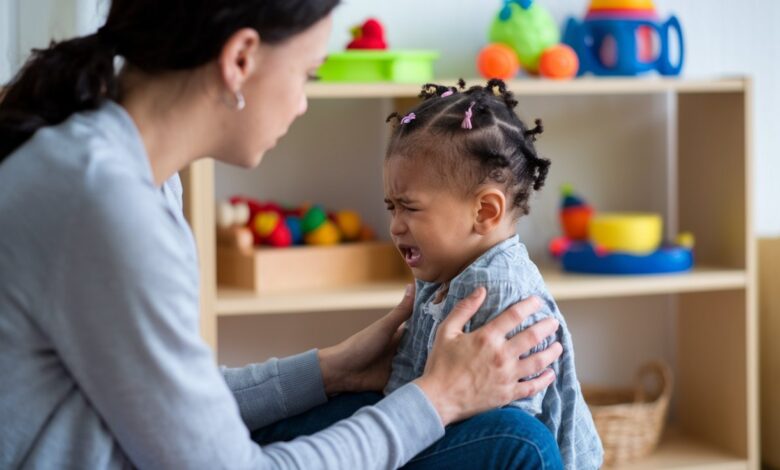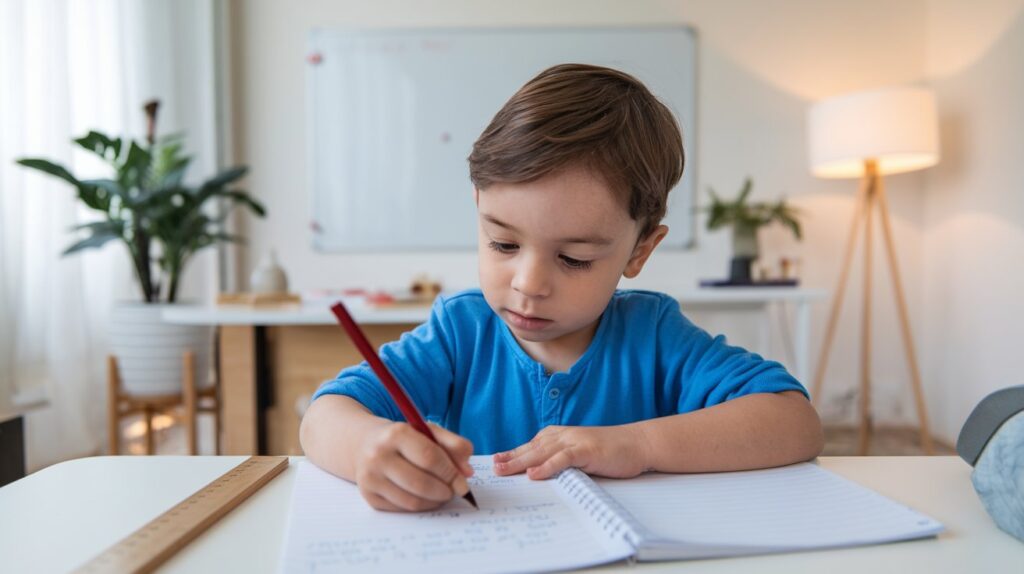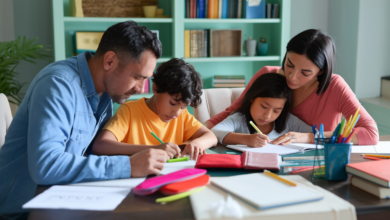How Positive Discipline Nurtures Emotional Intelligence

Parenting is a journey filled with challenges, joys, and countless learning moments. One of the most effective approaches to navigating this path is through Positive Discipline. This technique not only fosters good behavior but also nurtures emotional intelligence in children. Imagine raising kids who can identify their feelings, empathize with others, and resolve conflicts amicably. Sounds ideal, right? As parents, we all want our little ones to thrive emotionally and socially. By understanding how Positive Discipline works and its profound impact on emotional development, you can set your child on a path toward becoming a well-rounded individual equipped for the complexities of life. Let’s dive deeper into this transformative parenting method!
Understanding Positive Discipline

Positive Discipline is a parenting approach that focuses on teaching rather than punishing. It encourages children to understand the consequences of their actions, fostering a sense of accountability.
At its core, Positive Discipline emphasizes respect and kindness. Instead of resorting to harsh punishments or rewards, it promotes open communication and problem-solving skills. Parents are encouraged to guide with empathy while setting clear boundaries.
This method recognizes that mistakes are part of growing up. Rather than feeling defeated by misbehavior, parents can use these moments as opportunities for learning.
With Positive Discipline, the goal isn’t just immediate compliance but nurturing lifelong skills like self-regulation and resilience. By creating a supportive environment, children learn how to make better choices in the future while developing strong emotional foundations along the way.
The Importance of Emotional Intelligence
Emotional intelligence (EI) is a crucial skill in today’s world. It goes beyond mere intellect, encompassing the ability to recognize, understand, and manage emotions—both our own and those of others.
Individuals with high EI are often better equipped to navigate social complexities. They can empathize with others, leading to stronger relationships both personally and professionally. This connection fosters collaboration and improves communication.
Moreover, emotional intelligence contributes significantly to mental well-being. People who possess it tend to handle stress more effectively and exhibit greater resilience during challenging times.
In educational settings, children with developed EI demonstrate improved academic performance. Their ability to regulate emotions plays a key role in their focus and motivation.
Cultivating emotional intelligence sets the foundation for lifelong success. Whether it’s resolving conflicts or making thoughtful decisions, EI influences every aspect of our interactions in meaningful ways.
How Positive Discipline Supports the Development of Emotional Intelligence
Positive Discipline creates a nurturing environment where children can explore their emotions. Instead of using punishment, it focuses on teaching kids to understand and manage feelings.
By encouraging open communication, parents help children articulate what they are experiencing. This practice fosters self-awareness, a key component of emotional intelligence.
When mistakes happen, Positive Discipline encourages reflection rather than shame. Children learn to recognize the impact of their actions on others’ feelings. This understanding builds empathy and social awareness.
Moreover, through consistent boundaries paired with warmth and support, children feel secure enough to express themselves authentically. They develop resilience in facing challenges and conflicts as they arise.
As they navigate these scenarios with guidance from caregivers, kids become equipped with essential emotional skills that serve them well throughout life’s ups and downs.
Examples of Positive Discipline Techniques
Positive Discipline offers a wealth of techniques that help parents guide their children with empathy and respect. One effective method is using natural consequences. When children experience the results of their actions, they learn responsibility in a real-world context.
Another technique involves setting clear expectations. Communicating what behavior is acceptable creates an environment where children understand boundaries without feeling harshly punished.
Time-ins can also be beneficial. Instead of sending a child to timeout, invite them to take a moment to calm down with you. This fosters connection and emotional regulation.
Role-playing scenarios is another engaging way for kids to practice problem-solving skills while conveying empathy towards others’ feelings. Through these methods, Positive Discipline encourages personal growth and strong relationships within the family unit.
The Long-Term Benefits of Implementing Positive Discipline
Implementing Positive Discipline offers lasting benefits that extend far beyond childhood. Children equipped with this approach tend to develop strong problem-solving skills, enabling them to navigate challenges more effectively as they grow.
Moreover, these children often cultivate resilience. They learn that setbacks are a part of life and can be faced with a constructive mindset. This adaptability serves them well in academic settings and personal relationships.
Additionally, the sense of empathy fostered through Positive Discipline enhances social interactions. Kids learn to consider others’ feelings, leading to healthier friendships and improved communication skills.
In adulthood, individuals raised with Positive Discipline typically demonstrate higher emotional intelligence. They are better at managing their own emotions while understanding those of others—a crucial skill in both professional environments and personal lives.
The principles learned through Positive Discipline provide foundational tools that help shape emotionally intelligent adults ready for whatever life throws their way.
Tips for Incorporating Positive Discipline in Daily Parenting
Start by setting clear expectations for your children. Communicate what behaviors are acceptable and why they matter. This helps them understand the boundaries.
Use natural consequences when appropriate. If a child doesn’t wear a jacket on a chilly day, let them feel the cold rather than forcing compliance. This teaches responsibility.
Practice active listening during conflicts. Acknowledge their feelings without judgment. This builds trust and shows that you value their perspective.
Incorporate family meetings to discuss issues openly. Invite everyone to share thoughts and brainstorm solutions together, fostering teamwork and cooperation.
Model emotional regulation yourself. Show how to manage frustration or disappointment in healthy ways; kids learn best through observation.
Celebrate efforts over results! Recognize moments of good behavior or emotional growth to reinforce positive actions, creating an uplifting atmosphere at home where everyone thrives emotionally.
Conclusion
Positive Discipline offers a refreshing approach to parenting, fostering a nurturing environment where children can thrive. By prioritizing emotional intelligence, parents equip their kids with vital skills for navigating life’s challenges.
Through understanding and empathy, Positive Discipline transforms typical discipline into an opportunity for growth. The techniques encourage open communication, self-regulation, and respect—crucial components of emotional maturity.
As you integrate these practices into your daily routine, remember that every moment is a chance to reinforce positive behaviors while maintaining boundaries. The journey you embark on today will not only shape your child’s present but also lay the foundation for their future relationships and successes.
Embrace this enriching path as you nurture both discipline and emotional intelligence in your family. Your commitment to Positive Discipline will yield lasting benefits that resonate throughout their lives.



